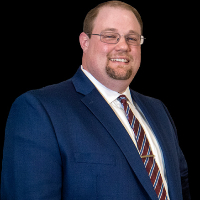West Columbia DUI-DWI Lawyer, South Carolina
Dayne C. Phillips
Criminal, DUI-DWI, Misdemeanor, Felony, White Collar Crime
Dayne Phillips is a lawyer in the state of South Carolina who handles cases in the area of criminal law. He has tried cases dealing with dui, gun ... (more)
G. Robin Alley
✓ VERIFIEDFamily Law, Criminal, DUI-DWI, Divorce
The Law Firm of Isaacs & Alley is rated “AV Preeminent” by Martindale-Hubbell, which is the highest peer rating achievable for legal ability and e... (more)
Jacob Taylor Bell
✓ VERIFIEDCriminal, White Collar Crime, Juvenile Law, DUI-DWI, Felony
Ask J. Taylor Bell what he most enjoys about his criminal defense law practice and his response is unequivocal: “Fighting the power.” “Criminal ... (more)
Lori S. Murray
DUI-DWI, Criminal, Personal Injury, Medical Malpractice, Car Accident
Status: In Good Standing
FREE CONSULTATION
CONTACTM. David Scott
Criminal, DUI-DWI, Federal Appellate Practice, State Appellate Practice
Status: In Good Standing
Mollie DuPriest Taylor
Workers' Compensation, Divorce, Divorce & Family Law, DUI-DWI
Status: In Good Standing




